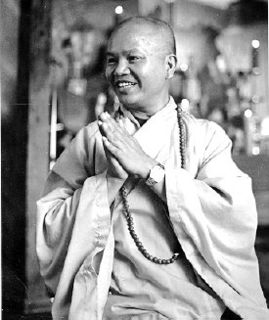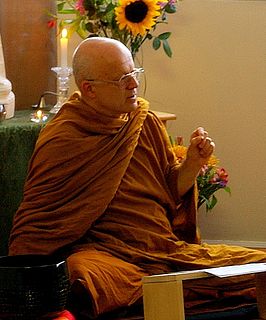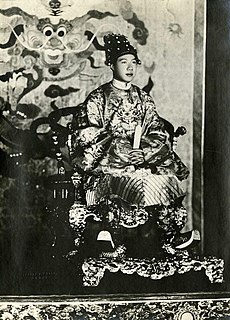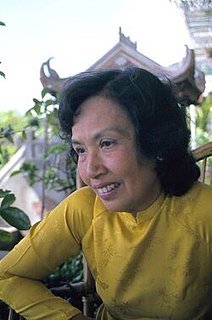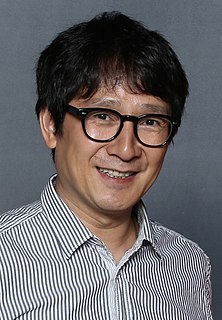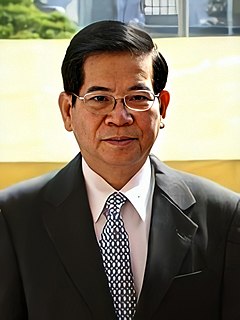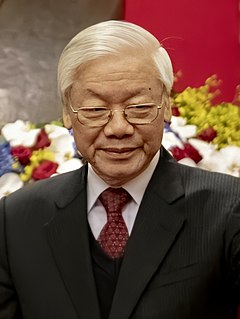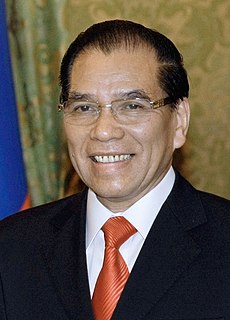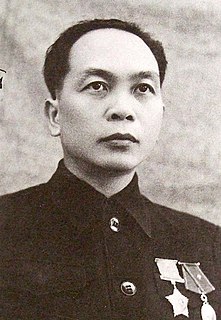A Quote by Thich Thien-An
In Zen Buddhism an action is considered good when it brings happiness and well-being to oneself and others, evil when it brings suffering and harm to oneself and others.
Related Quotes
Studying the Buddha way is studying oneself. Studying oneself is forgetting oneself. Forgetting oneself is being enlightened by all things. Being enlightened by all things is to shed the body-mind of oneself, and those of others. No trace of enlightenment remains, and this traceless enlightenment continues endlessly.
The first beneficiary of compassion is always oneself. When compassion, or warmheartedness, arises in us and our focus shifts away from our own narrow self-interest, it is as if we open an inner door. It reduces fear, boosts confidence and brings us inner strength. By reducing distrust, it opens us to others and brings us a sense of connection to others, and sense of purpose and meaning in life.
Lack of understanding of the true nature of happiness, it seems to me, is the principal reason why people inflict sufferings on others. They think either that the other's pain may somehow be a cause of happiness for themselves or that their own happiness is more important, regardless of what pain it may cause. But this is shortsighted. No one truly benefits from causing harm to another sentient being. . . . . In the long run causing others misery and infringing their rights to peace and happiness result in anxiety, fear, and suspicion within oneself.
In our concern for others, we worry less about ourselves. When we worry less about ourselves an experience of our own suffering is less intense. What does this tell us? Firstly, because our every action has a universal dimension, a potential impact on others' happiness, ethics are necessary as a means to ensure that we do not harm others. Secondly, it tells us that genuine happiness consists in those spiritual qualities of love, compassion, patience, tolerance and forgiveness and so on. For it is these which provide both for our happiness and others' happiness.
Remember one thing: the one who brings unhappiness to others in the end becomes unhappy himself, and the one who brings happiness to others in the end reaches to the heights of happiness. That's why I am saying that someone who tries to give happiness develops the center of happiness inside himself, and someone who tries to bring unhappiness to others develops the center of unhappiness inside himself.
Against the suffering which may come upon one from human relationships the readiest safeguard is voluntary isolation, keeping oneself aloof from other people. The happiness which can be achieved along this path is, as we see, the happiness of quietness. Against the dreaded external world one can only defend oneself by some kind of turning away from it, if one intends to solve the task by oneself.
